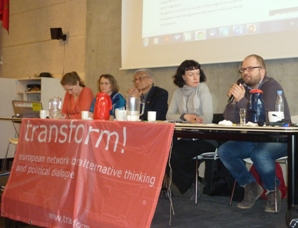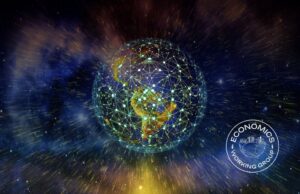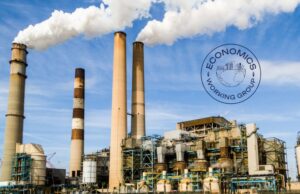Tranform!Danmark held its third international conference on 15 March this year – the first and the second had taken place in March 2012 and 2013 respectively. These international conferences in Copenhagen are efforts to promote alternative thinking and politics to environmental and mainstream economy and thinking, with the two last conferences having focused on alternatives to growth and to so-called “green growth”.
With this conference the intention was to focus more on proposals for concrete alternatives – whereas last year’s conference rather saw information as a principal purpose.
The conference attracted not only the older generation of left-wing activists but also – around 70% of the participants – a younger generation of activists and students interested in environmental transformation and left-wing politics in general. The conference was a one-day event and held in the trade union building of the unskilled workers’ union, Copenhagen section, as last year. With around 120 participants the central hall was full.
As a conference with very high quality speeches, there were many positive echoes of acknowledgment after the conference – and it was good to see more media coverage than last year: an interview in a Danish centre-left daily, weekend section; an interview in the main left-wing web journal and another article on the conference in the state development agency website.
Here are short reports of the speeches.
Keynote speakers
Walden Bello, author and Member of the Philippines’ House of Representatives, representing the party Akbayan, spoke on the issue of de-globalization, which Bello developed together with Focus on the Global South after the rise of the globalization movement against capitalist globalization around the turn of the new century. Walden Bello outlined the history of globalization as follows:
1. Globalization I: The period from 1815-1914: Free trade under the domination of the British Empire.
2. Globalization II: The period from 1918-1980: Free trade under the hegemony of the USA:
– 1914-1980: The state had a greater influence in the Keynesian era.
– 1980-2008: the period of neo-liberalism. The peak in 2007 and the global and financial crisis since 2008. During the crisis a neoliberal strategy has been maintained, although it had been the cause of the crisis in the first place.
Bello listed different tactics and views of how to manage the economy during the crisis:
- A neo-liberal school adhering to low growth and unemployment to pay for the crisis and emphasising exports.
- A Keynesian school in favour of a more aggressive fiscal stimulus with strong international regulation.
- An emerging school of economics seeing growth in emerging markets and its impact on smaller countries as a way-out of the crisis. (A comment added was that the BRIC countries have not been able to sustain growth)
- Lastly there is an “End of Growth?” school perceiving a more profound crisis and a post-growth world.
Since the 1990s globalization has been in increasing crisis, also as a consequence of the movement against it, Bello said: “The WTO did receive a blow in Seattle as it led to stronger criticism of the WTO.”
Now globalization is put on pause and cannot work the same way as before. The domestic market is far more important now and can be used as a starting point for anti-globalization mobilization, resistance and the struggle of the people, civil society, especially also in the global south. The de-globalization paradigm is especially important for the developing countries, Bello added, mentioning similarities with Via Campesina and the Food Sovereignty movement. But it can as well be used in any other context as it is important to develop more the domestic markets rather than export markets.
For further details concerning Walden Bello’s speech, his power-point presentation will soon be available on the Transform!Danmark website: www.transformdanmark.dk
Stella Semino, Representative of Grupo de Reflexión Rural Argentina in Europe, specialist in civil involvement in the role of the Organised Civil Society, spoke on experiences in Argentina of land-grabbing and soya production.
Stella Semino sees this as a struggle between civil society and neo-liberalism. Soya production was introduced as a way of paying off the debt in Argentina, which peaked in 2004. Soya has been the only production increasing, especially so since the government supported it. This is how Argentina paid for its debts. Soya was introduced and supported also by the Catholic organization Caritas.
With 6.6 million tons of soya, the expansion of soya production has been huge. The GDP has risen, but with enormous consequences and costs for the population: leaching of the soil (needs fertilizer), deforestation and water pollution. Only a few protected areas with plantations have been preserved. Soya production has worsened sustainability and the peasants have started resistance in Argentina.
Stella Semino underlined the connection between farming, debt and soil and land-grabbing and explained how events took a more sinister turn with FAO and others calling for a private sector input into agriculture: There has been a meeting between these, church leaders and Via Campesina, which she found particularly worrying.
Furthermore ALBA, the South-South cooperation in Latin America, is not resisting soya production, only her organisation doesn’t want it, Stella Semino said.
Tom Kucharz, Ecologistas en Acción, Spain, spoke on the free trade negotiations between the EU and the USA and the Alternative Trade Mandate, a proposal to make international trade and investment policy work for people and the planet, not just the profit interests of a few.
Thus he warned against the TTIP free trade negotiations between the EU and the US, as they were taking place in secret and the consequences are completely unclear to ordinary people. As a matter of fact they have an impact on all our lives, he said.
As examples of other issues people are not sufficiently informed about, Tom Kucharz mentioned the immigration disaster at the Italian island of Lampedusa, which was also due to land-grabbing in Africa.
In the Ukraine there is – amongst all the other conflicts – also one between free trade with EU or with Russia. The country is very dependent and vulnerable with regard to prices and the economy. The IMF will intervene, which will mean more debt and dependence on the EU.
The Troika-countries like Spain and Greece have huge problems. It is not a matter of public deficit but of the whole construction of the EU and the imbalance within the EU and, externally, of the EU’s trade policy on the world scale. There is a 27% unemployment rate in Greece, and they just fired 14,000 public servants. Energy prices are going up, water supply is being privatized. But the biggest danger is the negotiations on the EU/US trade agreement, as the countries have done nothing to regulate markets.
Tom Kucharz cited a long list of demands made by the Alternative Trade Mandate to stop the TTIP and to develop an alternative. For these see: www.alternativetrademandate.org
Afternoon Workshops
Part of the afternoon was dedicated to three workshops on the issues of:
1. Alternatives to the misuse of the land, water and nature;
2. Land-use issues, land-grabbing and land reforms;
3. Free trade as a destructive force against alternatives to growth;
Panel Debate
In the afternoon a new panel debate dealt with practical political experiences and solutions to the topics of the conference:
Corinne Morel Darleux, National Secretary in charge of Eco-Socialism and Regional Councellor, Parti de Gauche, France, spoke on the eco-socialist programme of the party.
She saw a convergence between Walden Bello, Tom Kucharz and Stella Semino with regard to the common struggle against the TTIP. Not only Denmark had said No to the EU at referendums, France had also said No to the Constitutional Treaty in 2005. And now the two largest regions in France (Ile de France and Provence) have said No to the TTIP.
Corinne Morel Darleux presented her view of Eco-Socialism as a synthesis of a socialist, feminist, environmentalist and ecological approach. The Parti de Gauche has adopted the eco-socialist manifesto, with 18 theses (translated into Danish and other languages).
The important issue is that there is an alternative to the present development that is possible, she said. There is, for example, an eco- socialist programme for publicly owned energy via progressive taxation. There should be real citizens’ control of common goods – not only via elections every fourth year. Eco-socialism is a new way of talking to people and keeping up dialogue, a way which consists in developing and supporting social movements.
Corinne Moel Marleux also shortly presented the issue of the long tradition in France of the use of nuclear power, which has been the case since the 1970s and which has been a big issue on the left since then. An alternative is necessary.
Teppo Eskelinen, Left Forum, Finland, and board member of transform! europe, spoke about some findings of a project on eco-socialist transformation and the possibilities and limits of green Keynesianism.
He stated that the left wing was very often good at critique and utopias. His starting point was the need to also look upon the path of transition from the present situation to where you want to go: How to move forward.
He believed that green Keynesianism and green investments could also be used, for example, for infrastructure purposes such as the building of railways and public transport instead of having more cars. Public investments could help the social crisis for many people, while a shorter working day and sharing the jobs better and more equally among everybody could also be useful.
Eskelinen argued that public governmental investments in climate change could be used as part of a Keynesian green strategy. During the financial crisis in 2008-2009 there was a lot of talk about a “Green New Deal” with big government and public intervention. It could also be a tool, although Keynesianism does not contest or challenge capitalism, as it comes from the state and government (top down) and not from beneath (bottom up) – it is not grass-roots oriented. So it is not the total or final solution, but could help to take some steps on the road.
Maria Gjerding, Environmental Secretary in the Parliament for the Red-Green Alliance and candidate for Parliament, Denmark, spoke on possibilities to influence national policies towards ecological socialism and de-growth.
She argued that high growth will never come back to Danish society: In the hegemonic public discourse today there is a firm and passionate belief that we can continue “business as usual”, fostering the idea and illusion that decoupling of environment and growth is possible, also in the so-called “green growth”, and that we will soon come back to a new upswing and economic boom again.
We can already now start with green transformation, she said. Green transition of the economy, for example, also means strong levels of redistribution of wealth to get higher equality.
Real transition means that we should drop as a target the growth of the GDP growth. Instead, the targets should be: happiness, life quality, redistribution of values, equality, reduced working hours and work shared more equally. Energy production should be carried out by civil society, a green transition from below, and not by parliament.
She listed new indicators of progress instead of the GDP, and as a consequence new parameters. We refer to Maria Gjerding’s speech on the Transform!Danmark website: www.transformdanmark.dk
Trine Henriksen, City Councillor in Gladsaxe, Red-Green Alliance, Denmark, presented her reflections on how to influence local policies from a radical environmental position.
She spoke about the experiences from her own municipality of Gladsaxe, close to Copenhagen. The municipal local area is an important field for the concrete struggle for eco-socialism. The left can try to affect, e.g., the local climate plan or labour and food policies in a more sustainable way.
Very interestingly in 2010 the municipality board accepted the target of a reduction of CO2 -emissions in 2020 by only 25%, when the Red-Green Alliance and experts in general recommended 40%. But in 2013 this was raised to 40%, because the national target was changed in an agreement in Parliament. The Red-Green Alliance has also worked for new energy standards in newly constructed houses and public institutions in the municipality, a climate network for the residents’ organizations, an expansion of district heating.
See the notes of Trine Henriksen on the Transform!Danmark website: www.transformdanmark.dk.
Furthermore Maria Gjerding and Trine Henriksen have sent their common power-point presentation: see www.transformdanmark.dk Final panel discussion
The conference was rounded up by a panel discussion with all the speakers of the conference.
From the presentations and the final panel discussion Transform!Danmark arrived at the following conclusions:
1. We have to work much more with radical, alternative economic and ecological approaches and proposals for transformation on a global scale. Cuts in CO2-emissions should, for example, be much more ambitious even on the short term.
2. It is very important to work further on developing eco-socialism. The Left must move from anti-capitalism to eco-socialism and workers’ management, and work out alternatives to growth, GDP, and to so-called “green growth”.
3. It is necessary to combine economy and politics. The alternative to neoliberal austerity politics is to work for equality (equitable income redistribution, for example) and workers’ management and civil society involvement: public production, cooperatives, socio-economic companies etc. And it is important to use a target other than the GDP.
4. The concept of de-globalization should be developed as well: This implies to further explore the possibility of a development of producing more for the “domestic markets” than for export markets – and of co-operation among countries of the global South. In general, cooperation should be more important than competition.
5. In the months to come the struggle against the TTIP negotiations and the agreement will be very important – also as part of the campaign in connection with the upcoming European Parliament elections on 25 May.



